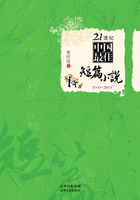“All right, darling,” said Lasaraleen in her lazy voice. “Here. Two of you take the Tarkheena‘s horses.” (This was to the slaves.) “And now home. I say, darling, do you think we really want the curtains drawn on a day like this? I mean to say.”
But Aravis had already drawn the curtains, enclosing Lasaraleen and herself in a rich and scented, but rather stuffy, kind of tent.
“I mustn’t be seen,” she said. “My father doesn‘t know I’m here. I‘m running away.”
“My dear, how perfectly thrilling,” said Lasaraleen. “I’m dying to hear all about it. Darling, you‘re sitting on my dress. Do you mind? That’s better. It is a new one. Do you like it? I got it at.”
“Oh, Las, do be serious,” said Aravis. “Where is my father?” “Didn‘t you know?” said Lasaraleen. “He’s here, of course. He came to town yesterday and is asking about you everywhere. And to think of you and me being here together and his not knowing anything about it! It‘s the funniest thing I ever heard.” And she went off into giggles.
She always had been a terrible giggler, as Aravis now remembered.
“It isn’t funny at all,” she said. “It‘s dreadfully serious. Where can you hide me?”















